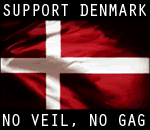Poland - EU Powerbroker?
Nicolas Sarkozy, the president of the UMP party and a strong contender for the French presidency in 2007, has proposed a G6 group composed of France, Germany, Britain, Italy, Spain and Poland. Poland? In the context of discussing objections to this proposal from Belgium, EU Referendum gives us this analysis:
Why Poland was invited to join the G6 is even more interesting. On one level, this makes sense, as Poland is one of the large countries, the largest of the new East European states.See also Poll means new EU role for Poland:
On the other hand, it is probably the one that is having the worst economic problems and the one in which reforms have fallen behind. We shall see how the new government will fare.
There is, however, the matter of foreign policy. Poland (as well as the other East European member states) has notoriously been reluctant the Franco-German “European” line in foreign matters. President Kwasniewski was heavily courted and applauded by President Bush and the policy is unlikely to change. Furthermore, as we have written several times, Poland has been conducting her own policy on the eastern border, building up friendly relations with Ukraine and not so friendly ones with Belarus and Russia. In this she had the full support of another member state, Lithuania.
But their appearance on the European stage is more likely to be a confident march than a waddle.
They are aghast that surveys show many Poles see themselves as citizens of "a small nation" when it is geographically large, and so in terms of EU votes, powerful.
Their leader has said it is time for other countries to stop "yelling" at Poland. French President Jacques Chirac may be wondering "Do they mean me?"
This is the main reason why Law and Justice and their almost inevitable coalition partners Civil Platform (PO), are opposed to the European Union constitution.
They prefer the Nice treaty which gives Poland more of a say. Few think the constitution has much of a chance of being revived in its current form, but the Polish election is another shovel full of earth on the coffin.
. . . . .
Their vision is dominated by what they see as Poland's best economic interests. Poland is not likely to join the euro in the near future.
. . . . .
Both Polish parties are keen on economic liberalism and are likely to back Mr Blair in his campaign for a Europe that is more dynamic and less bothered about formal workers rights and social protection.
The Polish tourist board hit back at French fears of Polish plumbers
But this drive, at home and abroad, will only exacerbate worries in the those countries that are worried about the 10 new members who have joined the EU.
The Polish plumber was a bogeyman figure in the French referendum: someone who would do work on the cheap, putting righteous French plumbers out of a job.
The new Polish government hopes the country will be full of plumbers and other workers taking their businesses all over the EU, unhindered by the high costs at home that joining the euro could mean.








<< Home